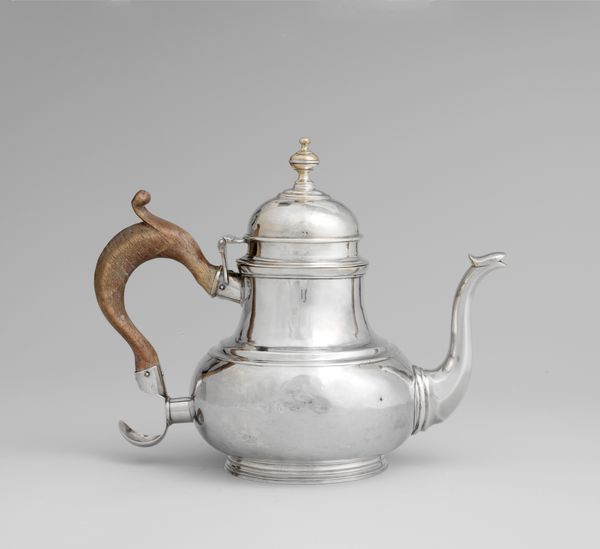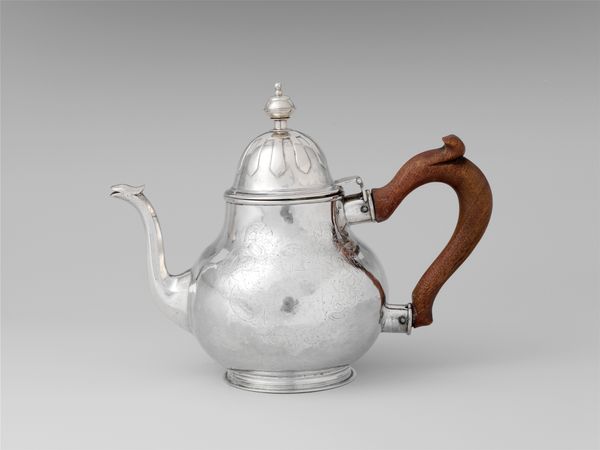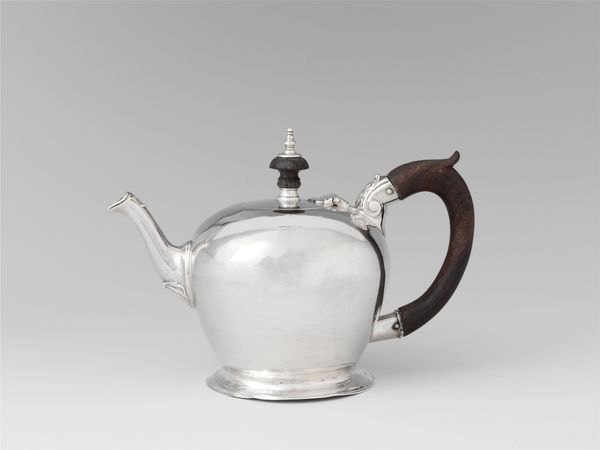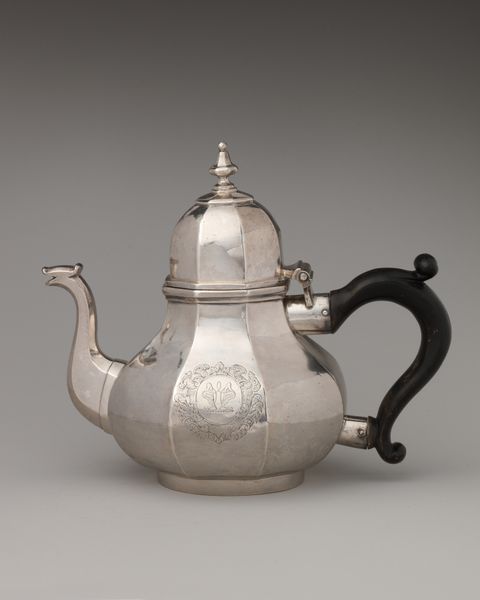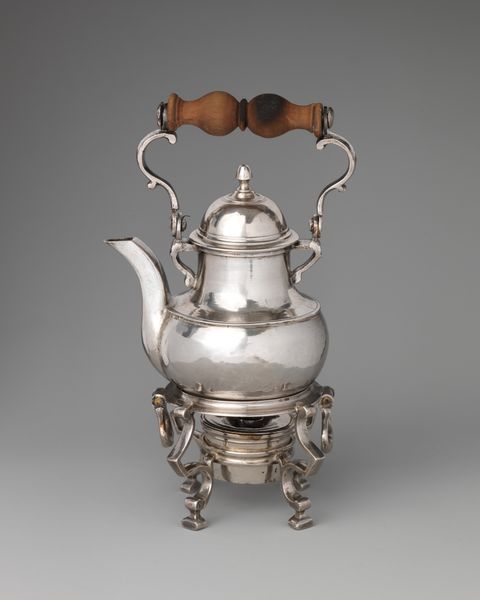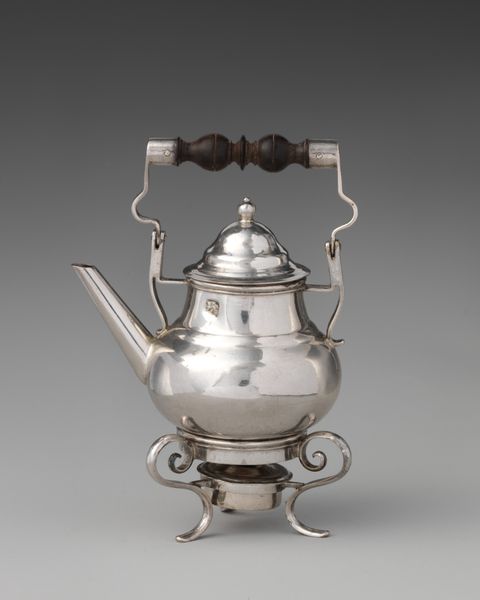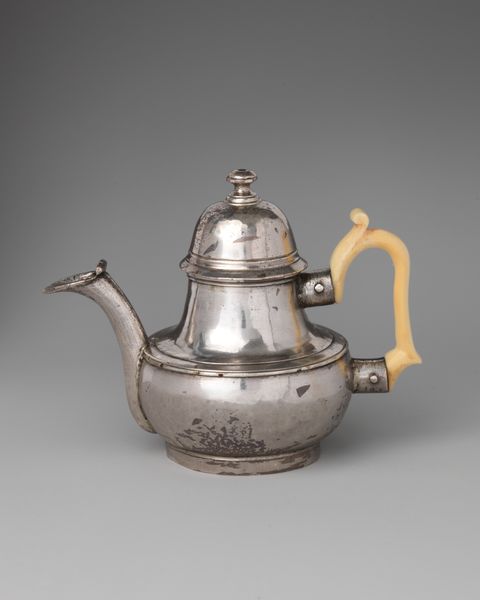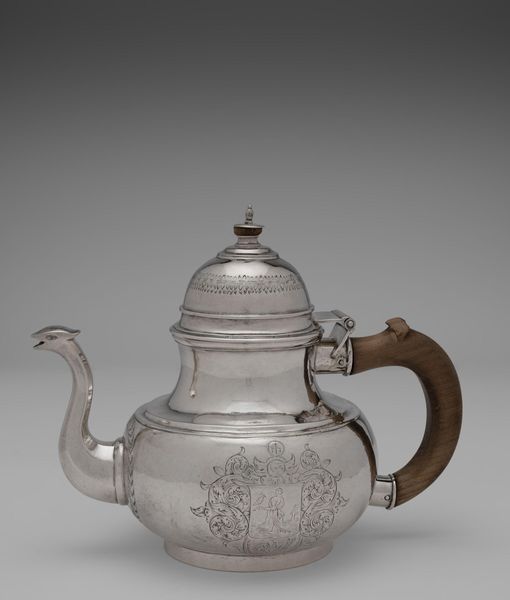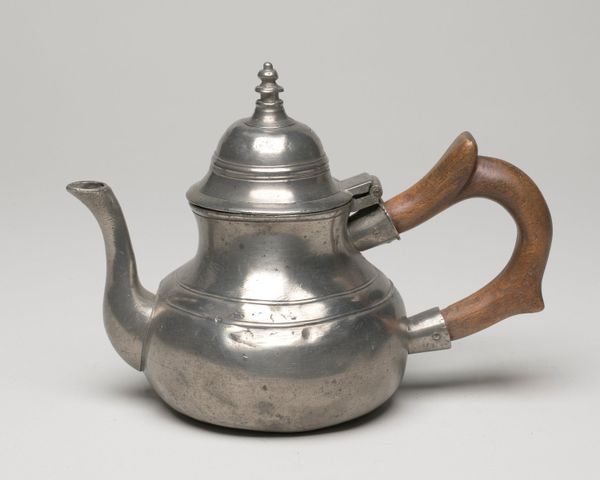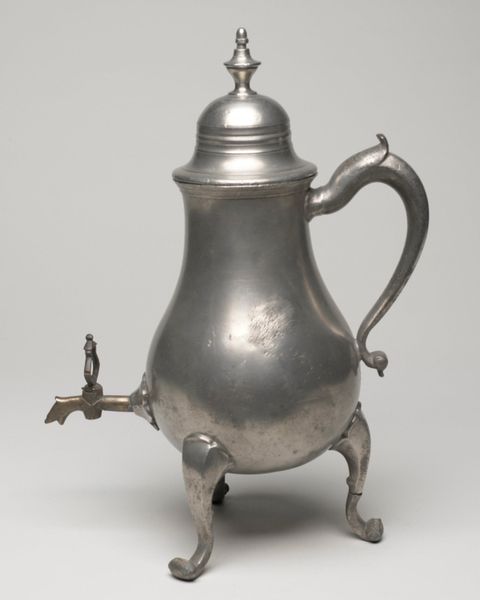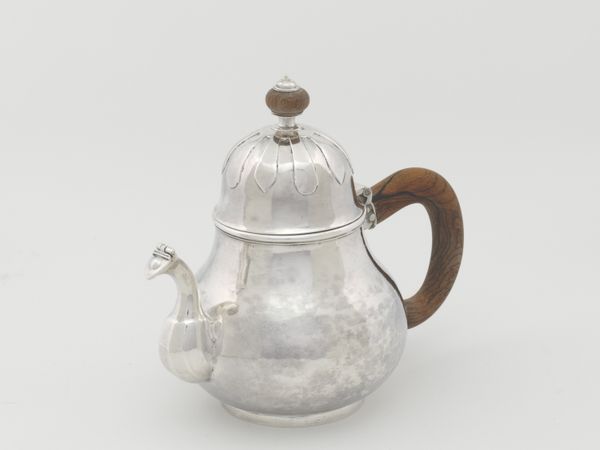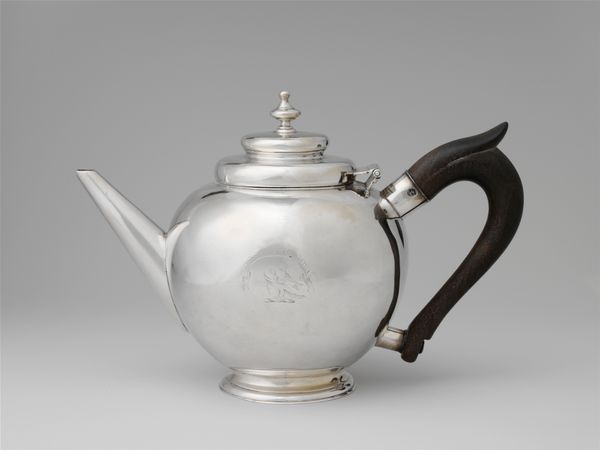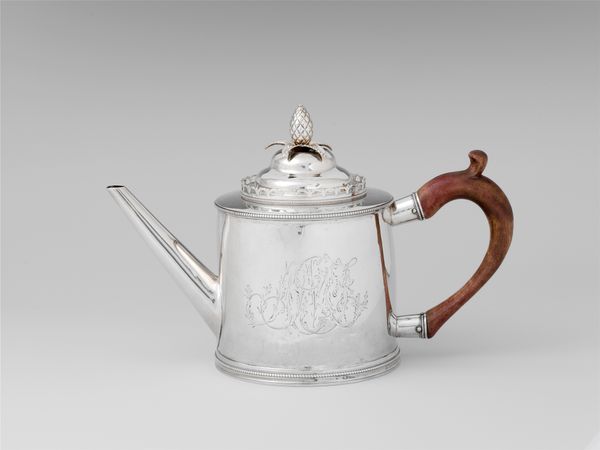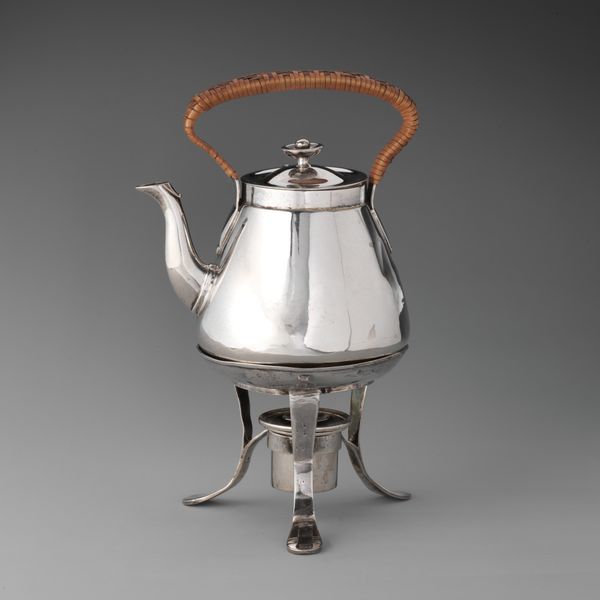
silver, wood
#
silver
#
baroque
#
wood
#
decorative-art
Dimensions: Overall: 7 9/16 x 8 1/4 x 4 13/16 in. (19.2 x 21 x 12.2 cm); 18 oz. (560.3 g) Foot: Diam. 2 15/16 in. (7.5 cm)
Copyright: Public Domain
This teapot was made by John Coney, a silversmith active in Boston during the late 17th and early 18th centuries. He formed the body of the teapot from sheets of silver, hammering and shaping them into its distinctive, curvaceous form. What’s really striking is the combination of materials: the cool, reflective sheen of the silver contrasts beautifully with the warm, organic grain of the wooden handle. Think about the labor involved in crafting this object. Coney would have needed skills in metalworking, including forging, soldering, and polishing. The handle likely came from a separate workshop specializing in woodwork, showing a network of specialized labor. This teapot speaks volumes about colonial America and the burgeoning culture of tea consumption. As tea became more accessible, objects like this moved from the realm of pure utility to expressions of social standing. It shows that the distinction between the fine and decorative arts is very much a modern invention.
Comments
No comments
Be the first to comment and join the conversation on the ultimate creative platform.
